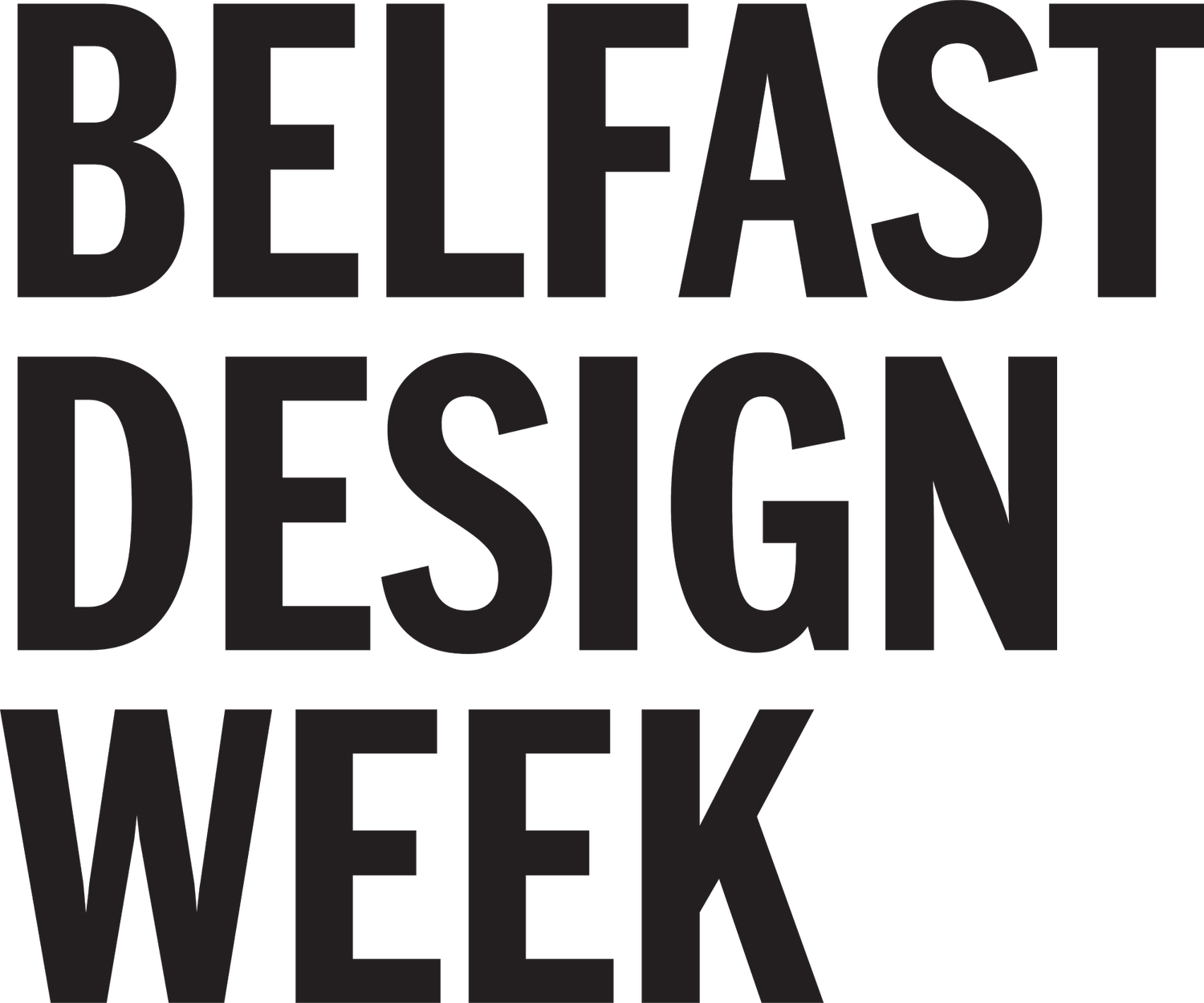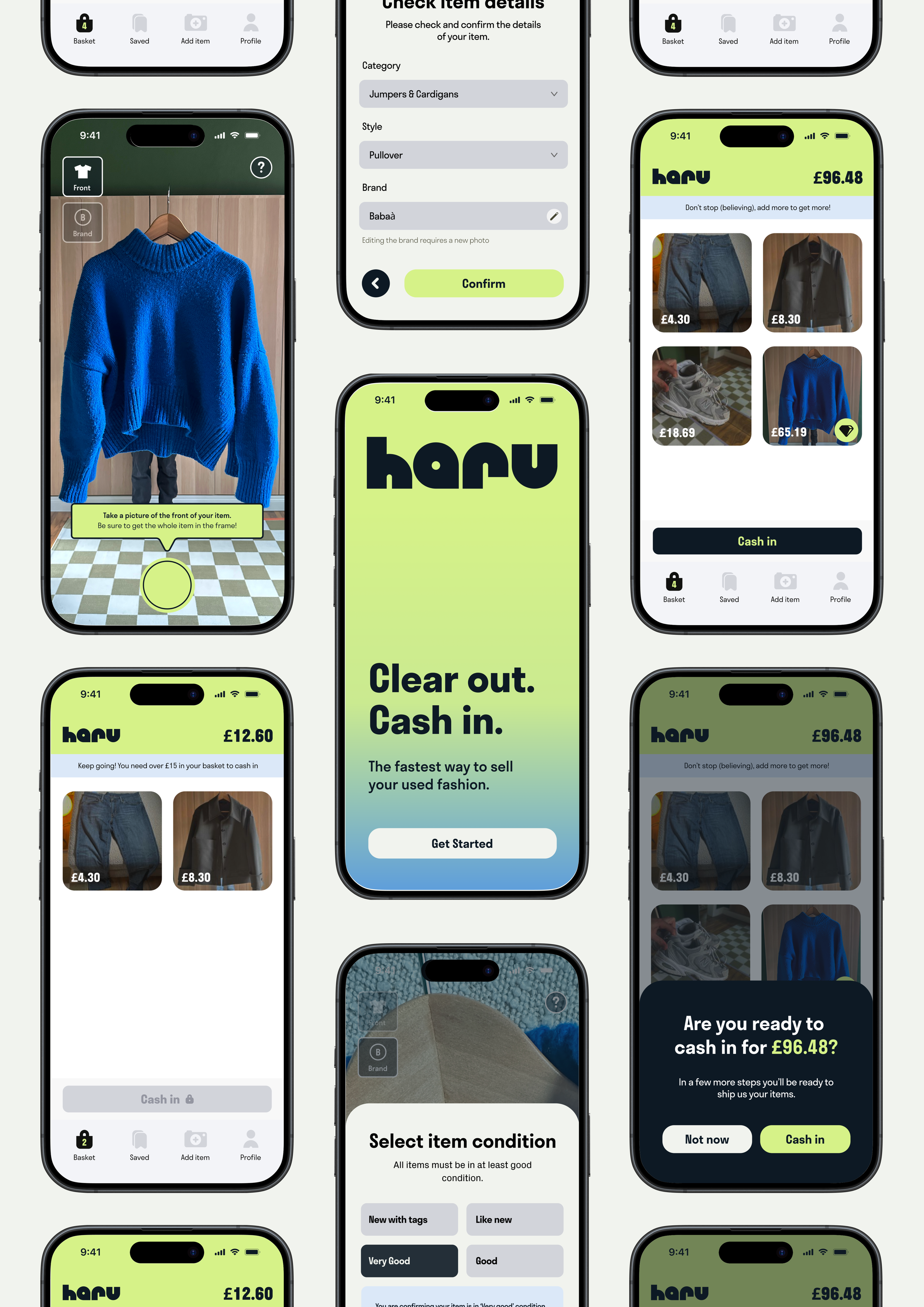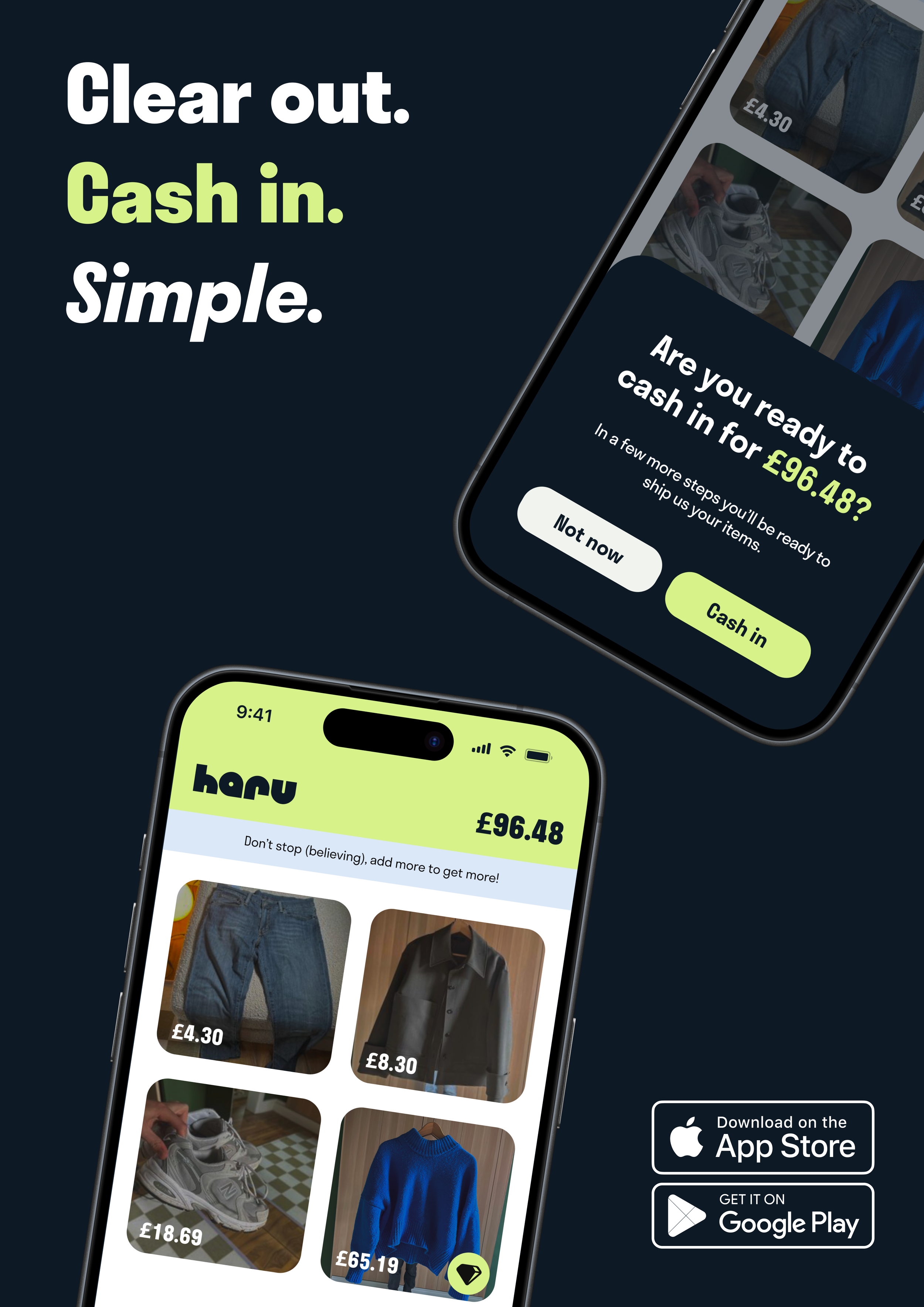Sam Lynas - Co-Founder of HARU -
Sam Lynas - Co-Founder of HARU -
Sam Lynas
Co-Founder of HARU
My name is Sam Lynas, and I’m an entrepreneur and product manager with a background in sustainable fashion resale. I co-founded Haru in 2017, a tech start-up focused on promoting circular fashion. My experience as a founder placed product and design at the heart of my work, with the ‘learn on your feet’ aspect forcing me to dive head first into design, teaching myself the essentials of product and UX design to bring our ideas to life.
As the company grew, my design practice adapted and evolved and moved toward a more user-centric experience. I began to focus on building solutions that empowered people to make more sustainable fashion choices. Nearly two years ago, Haru was acquired by RESPONSIBLE, a resale platform connecting brands, marketplaces, and consumers to expand the supply of quality second-hand products.
Now as a product manager at RESPONSIBLE, I oversee the design of our technology products, integrating the values that inspired Haru into an app and experience that drives sustainable fashion forward.
What does sustainability mean to you?
To me, sustainability is a way of living that respects our planet and acknowledges our responsibility toward it. It’s said that the average human spends a third of their entire life at work, therefore, it was important to me to choose a career path that was rooted in sustainability, with the hope to create meaningful impact. Growing up, you would regularly find me watching Planet Earth or Blue Planet, and it was in fact a singing cartoon lion that first taught me of ‘the circle of life’. Nature itself shows us the perfect example of a circular, sustainable ecosystem. I believe in the power of design and technology to mend our broken systems, serving both people and planet.
How do you incorporate sustainability into your design practice?
Designing technology in the fashion resale space, I incorporate sustainability by focusing our design on utility, usability and making sustainable choices as easy as possible for users. Through the Haru APP, the design mirrors the simplicity of the service, making a clear-out easy and enjoyable for users, promoting circular fashion. I design with accessibility and simplicity in mind, ensuring the app meets diverse user needs, while reducing friction for sustainable actions. Like all of our technology products the Haru App is aligned to our vision of reducing the consumption of new goods.
Do you have any advice on how designers and design businesses can incorporate sustainability into their design practice?
My advice for technology businesses is to prioritise simplicity in their product design and focus on creating user-friendly experiences that make sustainable choices more accessible. Beyond design itself, collaboration is key. Working with others in the industry whether it’s brands, suppliers, or tech partners opens up new possibilities for solving complex sustainability challenges. By sharing insights and resources, we can develop innovative solutions that no one could achieve alone, it’s about creating a network of committed partners who push each other toward meaningful, lasting change.
Are there any resources you can recommend that have helped you be more sustainable in your design practice?
In a business setting, climate based accelerator programs are an excellent way to learn and collaborate with others. At RESPONSIBLE/Haru we’ve been lucky to be on the Google Climate accelerator and part of the Fashion For Good network. These have been instrumental in enhancing the sustainability of my design practice, providing invaluable insights into integrating eco-friendly technologies and offering guidance on sustainable innovation within the fashion industry. On a local level, collaborating with Keep Northern Ireland Beautiful and Invest Northern Ireland has been beneficial. Their programs and support have deepened my understanding of environmentalism and sustainable business practices.





